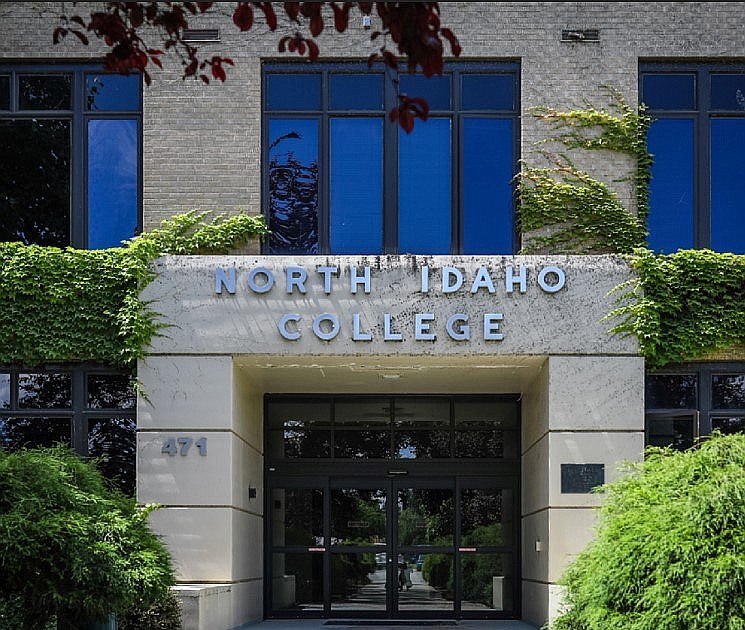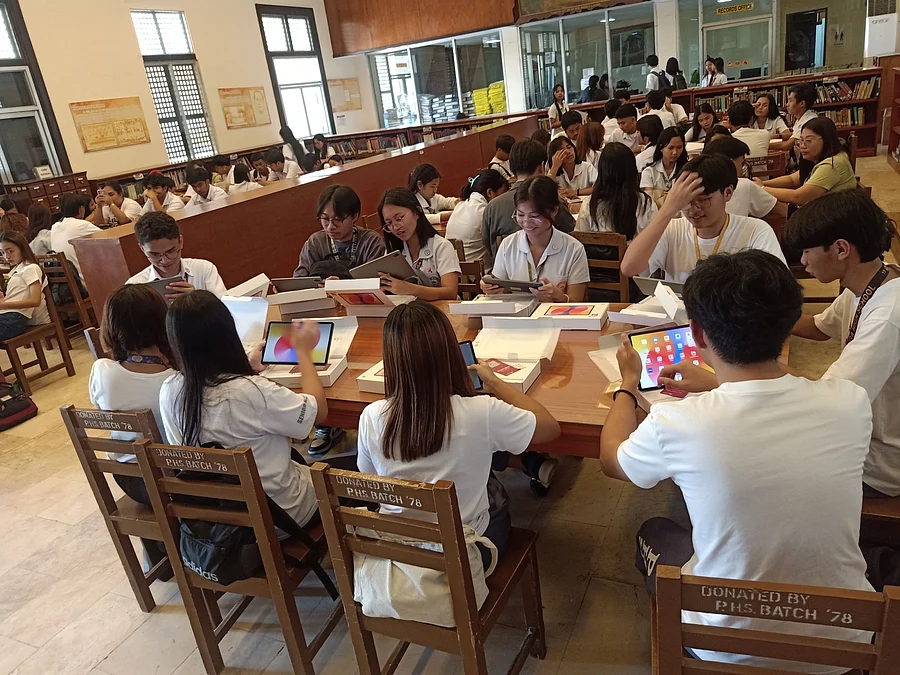By Rotimi Ige
Copyright tribuneonlineng

Babatunde Esanju is a senior software engineer, open-source contributor, and technology entrepreneur. In this interview, he talks about his career and other issues. ROTIMI IGE brings excerpts.
How do you think your experience in LegalTech has influenced your approach to problem-solving in other industries, such as FinTech and CareTech?
My career began in LegalTech at LawPavilion Nigeria, where I worked on digitising case law and legal processes. That experience sharpened my ability to translate highly regulated, paper-heavy workflows into streamlined, user-friendly systems. The legal sector taught me that compliance, accuracy, and trust are non-negotiable. Every solution had to be airtight because the cost of mistakes in law is incredibly high.
When I transitioned into FinTech and later CareTech, I carried that mindset with me. It wasn’t just about building products that looked good or functioned on the surface; it was about designing systems that could stand the test of regulation, scrutiny, and scale. In finance, trust is the currency, and in healthcare, safety is paramount. My LegalTech foundation gave me the discipline to balance innovation with responsibility, ensuring that solutions not only solved problems but also met regulatory and ethical standards.
Can you share some insights into the technical architecture of the Loan Management Portal you developed at LSETF, and how it achieved a 40 per cent increase in productivity?
At the Lagos State Employment Trust Fund, we were faced with the challenge of managing large volumes of loan applications manually. The process was not only slow but also prone to human error. To solve this, we built the Loan Management Portal on a modular, service-oriented architecture. Each module handled a specific function—whether that was loan application intake, credit assessment, approval work flows, or reporting.
We also implemented role-based access so that everyone from loan officers to compliance managers had clearly defined permissions. Automated credit assessments reduced approval times, and integrated reporting created transparency for management. What used to take days could now be accomplished in hours. The productivity increase of over 40 per cent came from automation of repetitive tasks, smarter workflow orchestration, and data-driven dashboards that gave decision-makers a real-time view of what was happening. It transformed LSETF’s operations from a manual, paper-heavy process into a dynamic and scalable digital platform.
What role do you think artificial intelligence and machine learning play in enhancing financial inclusion, and how have you incorporated these technologies into your projects, such as Wyrr and GenCapita?
AI and ML have the potential to rewrite the financial services playbook. Traditional credit scoring models often exclude people without a formal credit history, which is a large portion of the African population. With AI, we can look at alternative data, such as mobile phone usage, transaction patterns, or even behavioral analytics, to make fairer credit decisions.
At Wyrr, we experimented with fraud-prevention models that analysed transaction patterns in real time, flagging unusual behavior before it caused damage. At GenCapita, the focus was on investment pattern recognition. By applying machine learning, we were able to recommend smarter portfolio allocations to users based on their behavior and risk appetite. These aren’t just technical improvements; they are steps toward financial inclusion, creating opportunities for people who were previously invisible to traditional banking systems.
How do you balance the need for innovation with the requirement for regulatory compliance in your work, particularly in the FinTech sector?
This balance is one of the toughest challenges in FinTech. Many startups are eager to move fast and disrupt, but ignoring compliance is a ticking time bomb. My approach has always been “build fast, but build right.” For instance, at Gen Financial Limited, we had ambitious goals around securities trading and payment processing. But we knew from the start that we had to work closely with regulators.
We engaged with them early, explaining our product roadmaps, and aligning with KYC, AML, and data-protection frameworks. Instead of seeing compliance as a burden, we treated it as a competitive advantage. Once regulators trusted us, it gave us the freedom to innovate more confidently. That discipline is what has allowed me to build products that are both groundbreaking and sustainable.
What are some of the key lessons you learned from developing the Buy Now, Pay Later platform at QOOP, and how have you applied these lessons to other projects?
The BNPL platform at QOOP was an eye-opener. The technology itself was straightforward—creating a credit line for users and integrating it into e-commerce platforms. But the bigger challenge was human behavior. Many African consumers are still new to digital credit, and that means issues like repayment discipline, trust in the platform, and understanding the terms are critical.
We learnt very quickly that education and transparency had to be built into the product. Instead of hiding fees in fine print, we made repayment terms clear and user-friendly. Instead of focusing solely on growth, we focused on responsible lending. That approach reduced defaults and built long-term trust. I’ve carried those lessons into other projects, always ensuring that innovation is accompanied by financial literacy and user education.
As a co-founder and CTO of Aisiki, what was the inspiration behind building a logistics and agriculture-tech platform, and how do you see this sector evolving in the future?
Aisiki was born out of the realisation that one of Africa’s greatest challenges—agriculture—is also one of its biggest opportunities. Farmers were losing significant income because they lacked reliable logistics and direct access to markets. We set out to build a platform that connected farmers with logistics providers and buyers, reducing waste, improving efficiency, and increasing incomes.
The agriculture sector in Africa is primed for disruption. With the right mix of data, logistics, and financing, smallholder farmers can scale beyond subsistence farming. Looking ahead, I see technologies like IoT sensors for crop monitoring, mobile platforms for market access, and decentralised finance for micro-lending as key drivers of this transformation.
Can you tell us more about the technical challenges you faced in developing Caresyntra, and how you overcame them to create a seamless care management platform?
Caresyntra was a complex project because it sat at the intersection of healthcare, compliance, and technology. Care management requires strict adherence to regulations, but at the same time, caregivers need a platform that is intuitive and not overly bureaucratic. We had to build features like rostering, compliance tracking, and secure communication, all while ensuring that users found the platform easy to adopt.
The solution was to design the platform in a modular way, using cloud-based microservices for flexibility. Real-time synchronisation via secure APIs ensured that patient and staff data was always up-to-date and protected. It wasn’t just about solving technical problems; it was about designing for empathy. A platform in healthcare has to serve patients, families, and caregivers equally well, and that’s what we achieved with Caresyntra.
How do you think the ticketing industry can be transformed through technology, and what innovations have you introduced at TixTrack to enhance the user experience?
The ticketing industry has long suffered from inefficiencies and fraud. At TixTrack, we looked at how technology could make ticketing more transparent and accessible. I worked on features like transferable tickets, which allowed users to resell tickets safely, and group sales optimization, which helped event organizers cater to bulk buyers. We also introduced advanced reporting for organizers, giving them real-time insights into sales patterns.
These innovations don’t just improve efficiency—they improve trust. Event-goers feel safer knowing they won’t be duped by fake tickets, and organizers gain better tools to manage revenue and engagement. The result is a win-win ecosystem for everyone involved in live events.
What motivated you to create PayBridge.SDK, and how do you see this open-source project contributing to the developer community and the broader tech ecosystem?
Payment integration is one of the biggest headaches for developers. Each gateway has its quirks, and integrating multiple ones can be time-consuming. I built PayBridge.SDK as a unified API wrapper that supports both local and international gateways, drastically reducing integration time.
Making it open-source was intentional. I believe the best tools should be shared, not hoarded. Open-source projects like PayBridge democratise access, allowing small teams and startups to build at the same level as larger firms. It also encourages collaboration—developers can improve on it, adapt it, and feed those improvements back into the community. My hope is that PayBridge becomes a foundation stone for the next generation of African startups that want to scale globally.
Through your technical blog, tundehub.dev, you’ve shared insights on a range of topics, including microservices and cloud computing. What do you think are some of the most pressing issues in these areas, and how can developers stay up-to-date with the latest trends and technologies?
Microservices and cloud computing are exciting but also tricky. The biggest issues I see are around security, scalability, and cost optimization. Many startups rush to adopt microservices without putting observability, governance, and cost controls in place. That leads to chaos when the system scales.
Developers can stay sharp by engaging with open-source communities, studying real-world case studies, and experimenting with emerging technologies in safe environments. Writing for tundehub.dev keeps me honest. It forces me to learn continuously, to explain concepts clearly, and to share both successes and failures. That cycle of learning and teaching is what keeps me current.
With TechNaija FM, you’re creating a platform for voices in fintech, edtech, and digital transformation. What do you hope to achieve with this podcast, and how do you see it contributing to the tech ecosystem in Africa and the UK?
TechNaija FM is my way of giving back to the ecosystem. It’s a platform where African and UK voices can come together to share stories of innovation, resilience, and collaboration. Too often, the African tech narrative is told from the outside. I wanted to create a space where founders, developers, and investors could tell their own stories in their own voices.
My hope is for TechNaija FM to become a knowledge hub and an inspiration platform. If a young developer in Lagos or a founder in Manchester hears an episode and feels motivated to push through challenges, then the podcast has done its job. By amplifying diverse voices, we strengthen both ecosystems and build bridges across continents.
As someone who has worked on several high-impact projects, what do you think are some of the key factors that contribute to a project’s success, and how do you measure impact in your work?
From my experience, three factors stand out: clarity, collaboration, and adaptability. Clarity means everyone on the team understands the vision and the problem we’re trying to solve. Collaboration ensures that ideas flow freely and that no one feels siloed. Adaptability means being ready to pivot when new information emerges or when the market shifts.
I measure impact not just by whether the code works, but whether people actually use and trust the product. Adoption metrics, efficiency gains, and user satisfaction are my benchmarks. A project is only truly successful if it makes life easier for its users.
What role do you think collaboration and knowledge sharing play in driving innovation in the tech sector, and how have you incorporated these principles into your work?
Collaboration is the lifeblood of innovation. No one builds in isolation. Open-source projects, community events, hackathons, and mentorship all exist because innovation thrives when ideas are shared. Personally, I’ve embraced this through my blog, podcast, and developer
I’ve also seen firsthand at conferences how a single conversation can spark an entire startup. Knowledge sharing doesn’t just benefit the community; it benefits the individual too. By sharing what you know, you deepen your own understanding and open doors to opportunities you might never have imagined.
How do you think technology can be leveraged to address some of the most pressing socioeconomic challenges in Africa and the UK, such as financial exclusion and inequality?
Technology has already shown us glimpses of its power to transform lives. In Africa, mobile money has lifted millions out of financial exclusion. But we can go further—with blockchain providing transparency in public finance, AI offering fairer credit scoring, and telehealth making medical services accessible in remote areas.
In the UK, inequality manifests differently, but the tools are similar. Digital skills training can empower underserved communities, and AI-powered care platforms like Caresyntra can make healthcare more efficient and equitable. The key is designing technology that is inclusive, affordable, and accessible to those who need it most.
Looking back on your career, what do you think have been some of the most significant milestones, and how have these experiences shaped your approach to technology and innovation?
Looking back, there are several moments that shaped me. At LawPavilion, digitising legal processes taught me discipline and respect for compliance. At LSETF, driving financial empowerment showed me the power of technology to change lives on a large scale. Building BNPL and cooperative platforms at QOOP and getQoop.com taught me the importance of user trust and responsible growth.
On the technical side, creating open-source contributions like PayBridge.SDK and TableauSharp reinforced my belief in community-driven innovation. Launching TechNaija FM and planning the Obokun Tech Summit reminded me that storytelling and convening people are as important as writing code. Each milestone reinforced my core philosophy: technology should be a tool for empowerment. My approach today is simple—build solutions that matter, scale them ethically, and create opportunities for others.
ALSO READ TOP STORIES FROM NIGERIAN TRIBUNE



